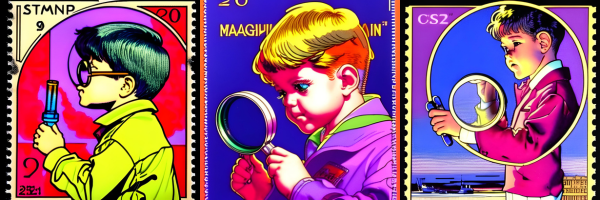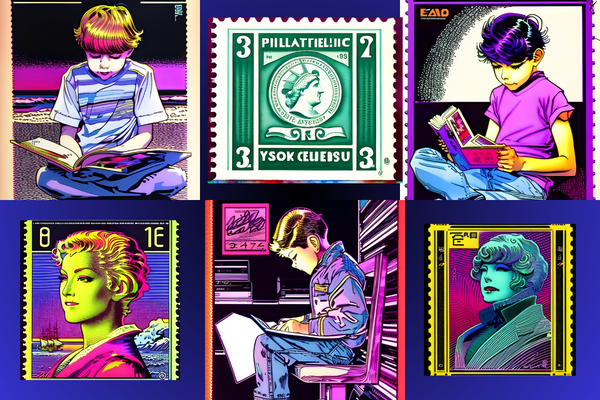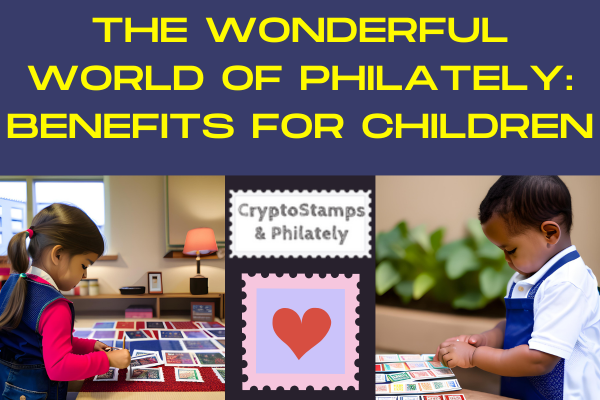
Stamp collecting, or philately, has been a popular hobby for centuries. Although it may seem old-fashioned in today’s digital world, this rewarding pastime offers numerous benefits for children. In this article, we will discuss the importance of encouraging kids to start a philatelic collection, as well as the many advantages it can provide for their intellectual, emotional, and social development.

1. Educational Value of Philately
Stamp collecting is a treasure trove of knowledge for young minds. Through their collection, children can learn about the history, culture, and geography of various countries. Each stamp tells a story, and as kids add more stamps to their collection, they can develop a broader understanding of the world around them. They can also learn about famous figures, landmarks, and events through commemorative stamps, sparking their curiosity and interest in a wide range of subjects.
Furthermore, philately teaches children the importance of organization and categorization. They can arrange their stamps according to country, theme, or other criteria, which helps them develop problem-solving skills and logical thinking. As they grow older, these skills can be invaluable in their academic and professional lives.
2. Building Patience and Perseverance
Building a stamp collection takes time and dedication, which helps children develop patience and perseverance. Unlike many modern hobbies that provide instant gratification, philately encourages kids to research, locate, and acquire stamps for their collection. The process of acquiring a new stamp, whether through trading, purchasing, or receiving it as a gift, can be immensely satisfying, teaching children the value of hard work and determination.
Additionally, stamp collecting can help children develop fine motor skills as they carefully handle and preserve their stamps. The meticulous process of organizing, mounting, and displaying stamps can also teach them the importance of attention to detail and precision.
3. Social Interaction and Community
Philately is not just an individual hobby; it also offers ample opportunities for social interaction. By joining stamp clubs or attending philatelic events, children can meet like-minded individuals who share their passion. This interaction can help them develop communication skills, build self-confidence, and create lasting friendships. Furthermore, stamp collecting can be a bonding activity for families, as parents and children can work together to expand their collection and share their discoveries.
Engaging in the philatelic community can also expose children to a diverse range of perspectives, backgrounds, and cultures. By interacting with collectors from around the world, kids can develop a greater sense of empathy and understanding, fostering tolerance and respect for others.

Conclusion
In conclusion, encouraging children to start a philatelic collection can provide numerous benefits for their intellectual, emotional, and social development. The educational value of philately helps expand their knowledge and curiosity, while the process of building a collection teaches patience, perseverance, and attention to detail. Moreover, the social aspect of stamp collecting fosters communication skills, self-confidence, and a sense of community. As a hobby that transcends age and cultural boundaries, philately is a rewarding and enriching experience for children and adults alike.





